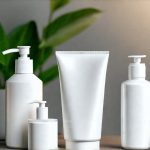Interstitial Cystitis (IC) presents unique challenges when it comes to personal hygiene, particularly cleaning intimate areas. Traditional methods often exacerbate symptoms like burning, frequency, and urgency due to the sensitivity inherent in this condition. Many individuals find that commonly recommended soaps, wipes, and even water can trigger flares or worsen existing discomfort. This is because the bladder’s inflammatory response isn’t limited to the urinary tract itself; it extends to surrounding tissues, making the pelvic region incredibly sensitive to irritants. Finding a gentle, effective cleaning routine requires careful consideration of ingredients, techniques, and individual tolerance levels – what works for one person may not work for another, necessitating a personalized approach. Understanding how to clean intimate areas is paramount for IC sufferers.
The core principle in maintaining intimate hygiene with IC is minimizing irritation. This means avoiding harsh chemicals, fragrances, and abrasive materials that can further inflame the bladder and surrounding tissues. It’s also vital to understand that excessive cleaning can strip away natural protective barriers, leading to increased sensitivity and potential for bacterial imbalances. The goal isn’t necessarily to achieve a sterile environment; rather, it’s about gentle cleansing that respects the delicate ecosystem of the vulva and perineum while avoiding triggers for bladder symptoms. This often means adopting a minimalist approach focused on water-based cleaning and carefully selected products designed for sensitive skin. Learning what are the best foods to avoid can also help minimize irritation.
Gentle Cleaning Practices for IC
The most significant step in creating a safe cleaning routine is eliminating potential irritants. This begins with scrutinizing all personal care products. Many commercially available soaps, washes, and wipes contain ingredients like sulfates (SLS/SLES), fragrances, dyes, parabens, and alcohol – all known bladder irritants. Even seemingly innocuous “natural” or “organic” products can contain essential oils or botanical extracts that trigger symptoms in sensitive individuals. Opting for pH-balanced, fragrance-free cleansers specifically formulated for sensitive skin is crucial. Look for products labelled ‘hypoallergenic’ and ‘dermatologist tested,’ although these aren’t foolproof guarantees. Water alone is often the safest option for daily cleaning, but if a cleanser is desired, it should be used sparingly and rinsed thoroughly.
Beyond product selection, technique plays a vital role. Avoid vigorous scrubbing or rubbing, which can irritate the delicate vulvar tissues. Instead, use gentle patting motions with soft washcloths or your hands. When rinsing, lukewarm water is preferred over hot or cold, as extreme temperatures can exacerbate bladder sensitivity. After cleansing, gently pat dry with a soft towel – avoid harsh rubbing. It’s also important to consider underwear choices; breathable cotton fabrics are best, while synthetic materials can trap moisture and contribute to irritation. Avoid tight-fitting clothing that puts pressure on the pelvic region. Understanding how to train the body is also beneficial for those with IC.
Minimizing Flare-Ups & Promoting Comfort
Proactive measures beyond daily cleaning can significantly reduce flare-ups associated with intimate hygiene. One key strategy is avoiding douching altogether – douching disrupts the natural vaginal flora, increasing vulnerability to infection and irritation. Similarly, scented feminine hygiene products like sprays or powders should be avoided entirely. After urination, gently pat dry from front to back to prevent bacterial contamination. Maintaining adequate hydration is also essential, as concentrated urine can further irritate the bladder. Finally, paying attention to your body’s signals is paramount; if a particular product or cleaning method consistently triggers symptoms, discontinue its use immediately.
Many individuals with IC find relief through dietary modifications, which indirectly impact urinary health and sensitivity. Reducing intake of common bladder irritants like caffeine, alcohol, citrus fruits, spicy foods, and artificial sweeteners can lessen the overall burden on the bladder and reduce the likelihood of flare-ups. Stress management techniques such as yoga, meditation, or deep breathing exercises are also beneficial, as stress can exacerbate IC symptoms. Remember that managing IC is a holistic process that extends beyond just intimate hygiene – it requires addressing all aspects of lifestyle and well-being.
Choosing the Right Cleansers
Selecting appropriate cleansers for those with IC requires careful evaluation. As mentioned earlier, fragrance-free, pH-balanced options designed for sensitive skin are paramount. Specifically look for products containing minimal ingredients. A shorter ingredient list generally means fewer potential irritants. Some individuals find success with oil cleansing using gentle oils like coconut oil (ensure it’s unrefined and cold-pressed) or jojoba oil, but these should be used cautiously as they can sometimes cause issues for others. – Always patch test any new cleanser on a small area of skin before widespread use. – Consider cleansers specifically formulated for vulvar health, often available from pharmacies or online retailers specializing in sensitive skincare. – Avoid products marketed as “intimate washes” if they contain harsh chemicals or fragrances.
Water Temperature & Cleansing Techniques
The temperature of the water used for cleansing is a frequently overlooked aspect of IC hygiene. Lukewarm water is generally the most comfortable and least irritating option. Hot water can increase inflammation, while cold water may cause muscle tension and discomfort. – When rinsing, direct the stream of water away from the urethra to avoid directly stimulating bladder sensitivity. – Use gentle patting motions instead of vigorous scrubbing or rubbing during cleansing. – Avoid using washcloths that are abrasive or rough in texture. Soft cotton washcloths or simply using your hands can be more comfortable options.
Post-Cleansing Care & Protection
After cleansing, gently pat the area dry with a soft towel. Avoiding harsh rubbing is crucial to prevent irritation. Consider applying a small amount of fragrance-free, hypoallergenic moisturizer specifically designed for sensitive skin if dryness is an issue. – Choose breathable cotton underwear and avoid tight-fitting clothing that restricts airflow or puts pressure on the pelvic region. – Regularly change underwear to maintain hygiene and prevent moisture buildup. – If you experience frequent flare-ups after cleansing, consult with a healthcare professional to rule out other underlying issues or sensitivities. They may recommend specific products or techniques tailored to your individual needs. How to avoid overstimulating the kidneys is also an important consideration for IC sufferers.





















